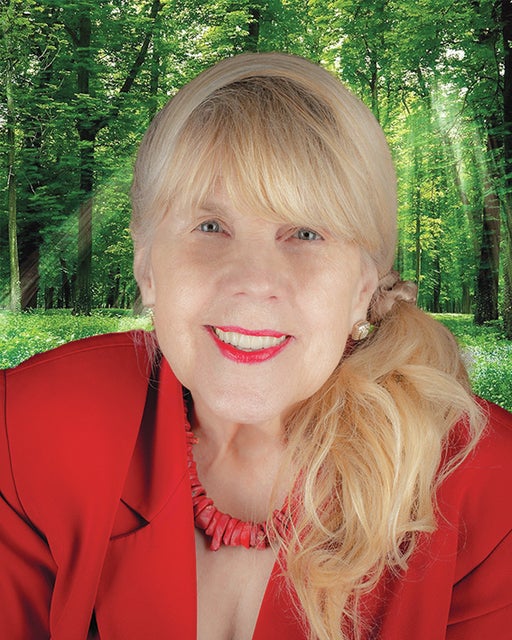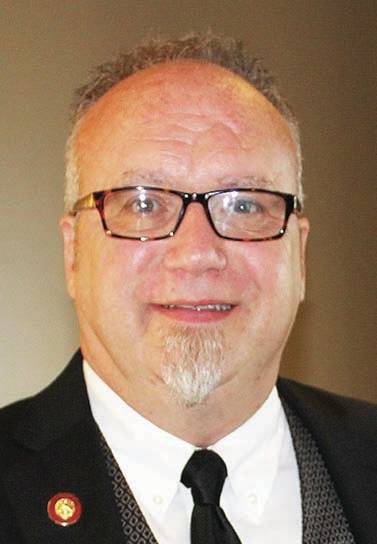Want to write your military story?
Published 6:01 am Saturday, February 9, 2019
Most of those who read my column work: Paid employment, volunteer work, tasks around the house and yardwork, if left undone, would create serious problems. Some of us juggle all three types of work.
Each of us has a different story as we give voice to our experiences which are defined by a host of factors: family background, religious views, the nature of the experiences themselves, and the timing of those events.
Star athlete, World War II veteran and Purple Heart recipient Charles R. “Dick” Bayman (1926-2008), of Piqua, Ohio, enlisted in the U.S. Army at age 18 in 1944. His brothers, George W. and William E. , were already serving in the military.
In 2000, Bayman self-published his 34-page candid account of, as he reports, “what I personally experienced, what I saw and what I heard.” Let me share with you.
He writes of his fears, his anger, the hardships, and his sense of wonder in the two years he served. Additionally, he brings to life the slogans/words that are familiar to some of us: Remember, scared men get killed; Maggie’s drawers; Baptism of fire; and Night Fighters.
As a soldier in the Battle of Leyte Gulf, which began in October of 1944, Bayman speaks of his hatred for the Japanese, his acknowledgement that he was in the “killing fields” where “Each day of fighting was pure hell, and the nights were even worse as the Japs were always digging in the rocks or doing something to get you to reveal your position while at the same time preventing you from getting any rest. Every day as you became more weary, your attitude towards living and dying became more hardened as the only way out of combat, short of the war ending, was to either be killed in action or wounded so badly you were no longer able to fight.”
He writes of cowardly acts, heroic acts, and the unfairness of who was selected to serve and possibly die: “… My thoughts were ‘death is everywhere.’ I can see it, I smell it and as I look it in the eye, I wondered when it would be my turn.”
He writes of the death of friends, the immoral behavior of one soldier (whom he cites by name), non-commissioned officers with no respect for what he and others had been through, and starving orphans.
As he describes in detail his own serious injuries on the battlefield and his treatment after, we hear the cries and screams of those in what he calls the “Shock Ward.” He describes the smell of rotting flesh, the dismemberments, the deaths, the Georgia nurse who was “truly an angel” and the “stupid statement” of the Massachusetts nurse who hated being there and was said to have “remarked that she would gladly change places” with any of the sick and wounded.
Bayman knew that in spite of his injuries, he and other were being patched up to be prepared for the invasion of the Japanese mainland. Japanese Emperor Hirohito was seeking a way to end the devastation, but time ran out for him. On Aug. 6, 1945, “Little Boy” was dropped on Hiroshima; on Aug. 9, 1946, “Fat Man” was dropped on Nagasaki.
In his notes, President Truman had written about the timing of the bombing , that the targets were to be “purely military”… “even if the Japs are savages, ruthless, merciless and fanatic.” The targets, of course, were not purely military, and there has been extensive discussion of whether the atomic bombs should have been used. (An essay that defends that action is “Thank God for the Atom Bomb” by Paul Fussell).
Bayman found the culture of the Philippines different and interesting : ‘the fishermen casting their nets,” the natives squatting and talking, open-air markets, and strange customs like Filipinos dragging a “chunk of meat via a rope tied around it” down a dirt path.
Hatred for the Japanese for killing his friends, Bayman writes, “would last throughout my lifetime.” In concluding, he writes, “I can tell you there will never be closure to World War II in my mind, my heart or my soul as long as I live.”
Note: Community members, and espescially veterans, are encouraged to begin writing and sharing their stories. Any community can begin a writing group, and I will help locate an instructor for your area.
Dr. Vivian Blevins is a Harlan County native. She has taught undergraduate and graduate students as well as prison inmates, and now teaches communication and American literature classes at Edison State Community College in Ohio. Reach her at vbblevins@woh.rr.com.






